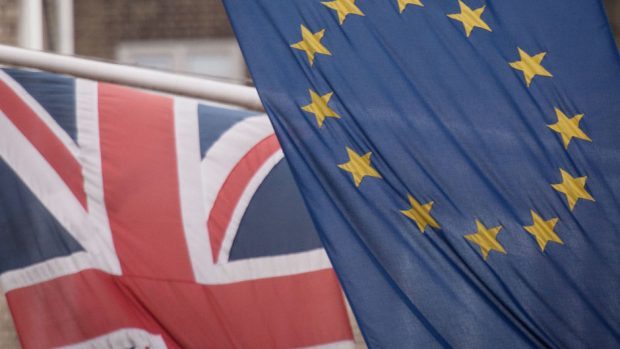Research funding and collaborations between animal scientists in Ireland and the UK should continue as usual post-Brexit, regardless of the trade deal eventually agreed between the two countries.
Ireland’s minister of state for agriculture, Andrew Doyle, said the UK and Ireland were home to world-leading scientists who had worked together to come up with innovative solutions to some of agriculture’s biggest challenges.
It was therefore important that relationships between research organisations such as Teagasc in Ireland and SRUC in Scotland were not disrupted when the UK leaves the European Union next year, he said.
Speaking at the British Society of Animal Science conference in Dublin, Mr Doyle said that while the future of trade between the two countries was under intense discussion, the future of research was not of concern.
“Collaborative research between the Ireland and the UK shouldn’t be affect by Brexit in any way,” he said.
“Research doesn’t need tariffs or borders – it’s something that we do globally, and there’s no intention whatsoever that research collaboration will be affected.
“We have so many similarities [in agricultural systems] that it makes absolute sense, regardless of Brexit, that those collaborative relationships continue.”
The minister’s comments came after he spoke to delegates about the major challenge Brexit posed to the UK and Ireland.
In a speech to the conference, he said agriculture was critical to the Irish economy, particularly as food exports were worth more than 13billion euros (£11.2billion) to the country last year.
With 38% of those exports going to the UK – including 50% of the country’s beef exports – finding ways to mitigate any impacts of Brexit was key.
The government had set out ambitious plans to increase the sustainability and profitability of food production by 2025, he said, but that required farmers to make the best use of research, and ensure their businesses were as efficient as possible.
